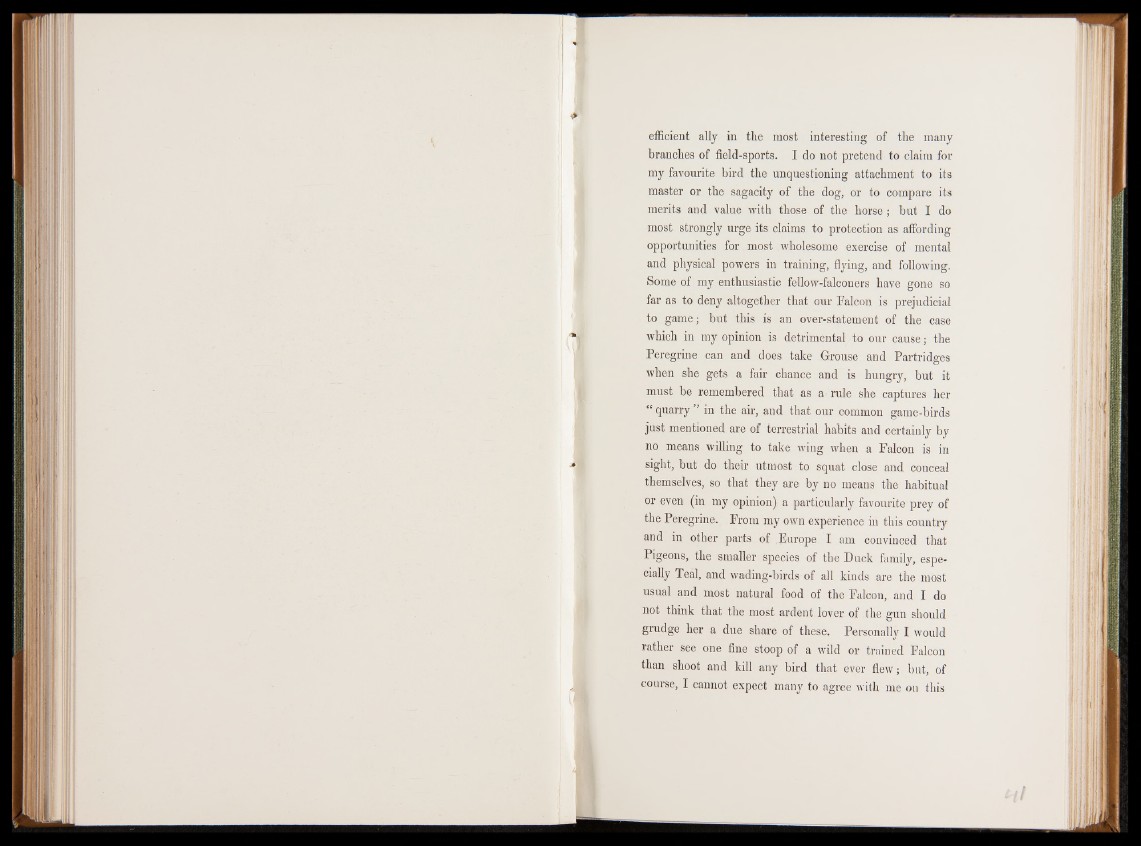
efficient ally in the most interesting of the many
branches of field-sports. I do not pretend to claim for
my favourite bird the unquestioning attachment to its
master or the sagacity of the dog, or to compare its
merits and value with those of the horse; but I do
most strongly urge its claims to protection as affording
opportunities for most wholesome exercise of mental
and physical powers in training, flying, and following.
Some of my enthusiastic fellow-falconers have gone so
far as to deny altogether that our Falcon is prejudicial
to game; but this is an over-statement of the case
which in my opinion is detrimental to our cause; the
Peregrine can and does take Grouse and Partridges
when she gets a fair chance and is hungry, but it
must be remembered that as a rule she captures her
“ qnarry ” in the air, and that our common game-birds
just mentioned are of terrestrial habits and certainly by
no means willing to take wing when a Falcon is in
sight, but do their utmost to squat close and conceal
themselves, so that they are by no means the habitual
or even (in my opinion) a particularly favourite prey of
the Peregrine. From my own experience in this country
and in other parts of .Europe I am convinced that
Pigeons, the smaller species of the Duck family, especially
Teal, and wading-birds of all kinds are the most
usual and most natural food of the Falcon, and I do
not think that the most ardent lover of the gun should
grudge her a due share of these. Personally I would
rather see one fine stoop of a wild or trained Falcon
than shoot and kill any bird that ever flew; but, of
course, I cannot expect many to agree with me on this